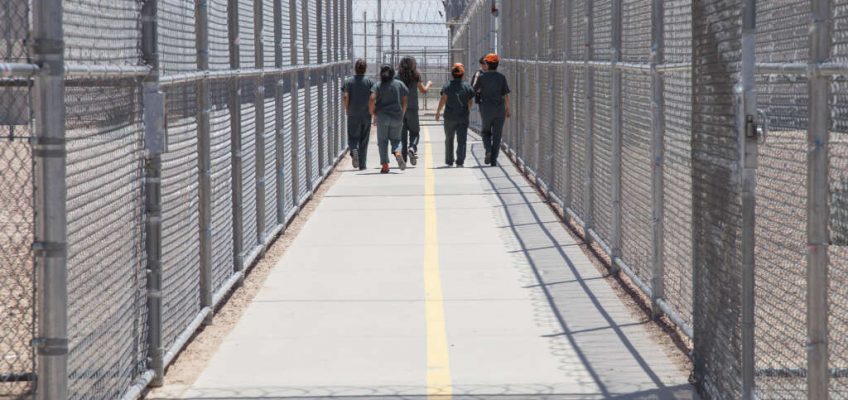By DYLAN LOVAN
LOUISVILLE, Ky. (AP) — A federal judge on Monday sentenced an ex-Kentucky police officer to nearly three years in prison for using excessive force during the 2020 deadly Breonna Taylor raid, declining a Justice Department recommendation that he be given no prison time.
Related Articles
Ecuadorian drug lord ‘Fito’ pleads not guilty after being extradited to New York
Appeals court orders new trial for man convicted in 1979 Etan Patz case
Jimmy Buffett’s widow accuses financial adviser of breaching fiduciary duty in $275M trust battle
Alabama man’s death is ruled a homicide after police kneeled on his neck
Malcolm-Jamal Warner, ‘Cosby Show’ actor, dies in Costa Rica drowning
Brett Hankison, who fired 10 shots during the raid but didn’t hit anyone, was the only officer on the scene charged in the Black woman’s death. He is the first person sentenced to prison in the case that rocked the city of Louisville and spawned weeks of street protests over police brutality five years ago.
U.S. District Judge Rebecca Grady Jennings sentenced Hankison at a hearing Monday afternoon. She said that no prison time “is not appropriate” for Hankison and said she was “ startled” that there weren’t more people injured in the raid.
THIS IS A BREAKING NEWS UPDATE. AP’s earlier story follows below.
LOUISVILLE, Ky. (AP) — A federal judge prepared Monday afternoon to sentence an ex-Kentucky police officer convicted of using excessive force during the deadly Breonna Taylor raid, days after the U.S. Justice Department recommended he receive no prison time in the Black woman’s fatal shooting.
Brett Hankison fired his weapon the night of the March 2020 botched drug raid. His shots didn’t hit or injure anyone, but flew through Taylor’s walls into a neighboring apartment.
The 26-year-old’s death, along with the May 2020 police killing of George Floyd in Minneapolis, sparked racial injustice protests nationwide that year.
Though the sentence could amount to several years, if U.S. District Judge Rebecca Grady Jennings heeds the Justice Department’s request, it would mean none of the Louisville police officers involved in the raid would face prison time.
Last week, the U.S. Justice Department recommended no prison time for Hankison, in an abrupt about-face by federal prosecutors that has angered critics after the department spent years prosecuting the former detective.
The Justice Department, which has changed leadership under President Donald Trump since Hankison’s conviction, said in a sentencing memo last week that “there is no need for a prison sentence to protect the public” from Hankison. Federal prosecutors suggested time already served, which amounts to one day, and three years of supervised probation.
Prosecutors at his previous federal trials aggressively pursued a conviction against Hankison, 49, arguing that he blindly fired 10 shots into Taylor’s windows without identifying a target. Taylor was shot in her hallway by two other officers after her boyfriend fired from inside the apartment, striking an officer in the leg. Neither of the other officers was charged in state or federal court after prosecutors deemed they were justified in returning fire into the apartment. Louisville police used a drug warrant to enter the apartment, but found no drugs or cash inside.
A separate jury deadlocked on federal charges against Hankison in 2023, and he was acquitted on state charges of wanton endangerment in 2022.
In their recent sentencing memo, federal prosecutors wrote that though Hankison’s “response in these fraught circumstances was unreasonable given the benefit of hindsight, that unreasonable response did not kill or wound Breonna Taylor, her boyfriend, her neighbors, defendant’s fellow officers, or anyone else.”
Civil rights attorney Ben Crump, who helped Taylor’s family secure a $12 million wrongful death settlement against the city of Louisville, has called the Justice Department recommendation “an insult to the life of Breonna Taylor and a blatant betrayal of the jury’s decision.” He added in a social media post that it “sends the unmistakable message that white officers can violate the civil rights of Black Americans with near-total impunity.”
On Monday, the Louisville Metro Police Department arrested four people in front of the courthouse who it said were “creating confrontation, kicking vehicles, or otherwise creating an unsafe environment.” Authorities didn’t list the charges those arrested would face.
“We understand this case caused pain and damaged trust between our department and the community,” a police statement said. “We particularly respect and value the 1st Amendment. However, what we saw today in front of the courthouse in the street was not safe, acceptable or legal.”
A U.S. Probation Office presentencing report said Hankison should face a range of 135 to 168 months imprisonment on the excessive force conviction, according to the memo. But federal prosecutors said multiple factors — including that Hankison’s two other trials ended with no convictions — should greatly reduce the potential punishment.
The memorandum was submitted by Harmeet Dhillon, chief of the Justice Department’s Civil Rights Division and a Trump political appointee who in May moved to cancel settlements with Louisville and Minneapolis that had called for overhauling their police departments.
In the Taylor case, three other ex-Louisville police officers have been charged with crafting a falsified warrant, but have not gone to trial. None were at the scene when Taylor was shot.




